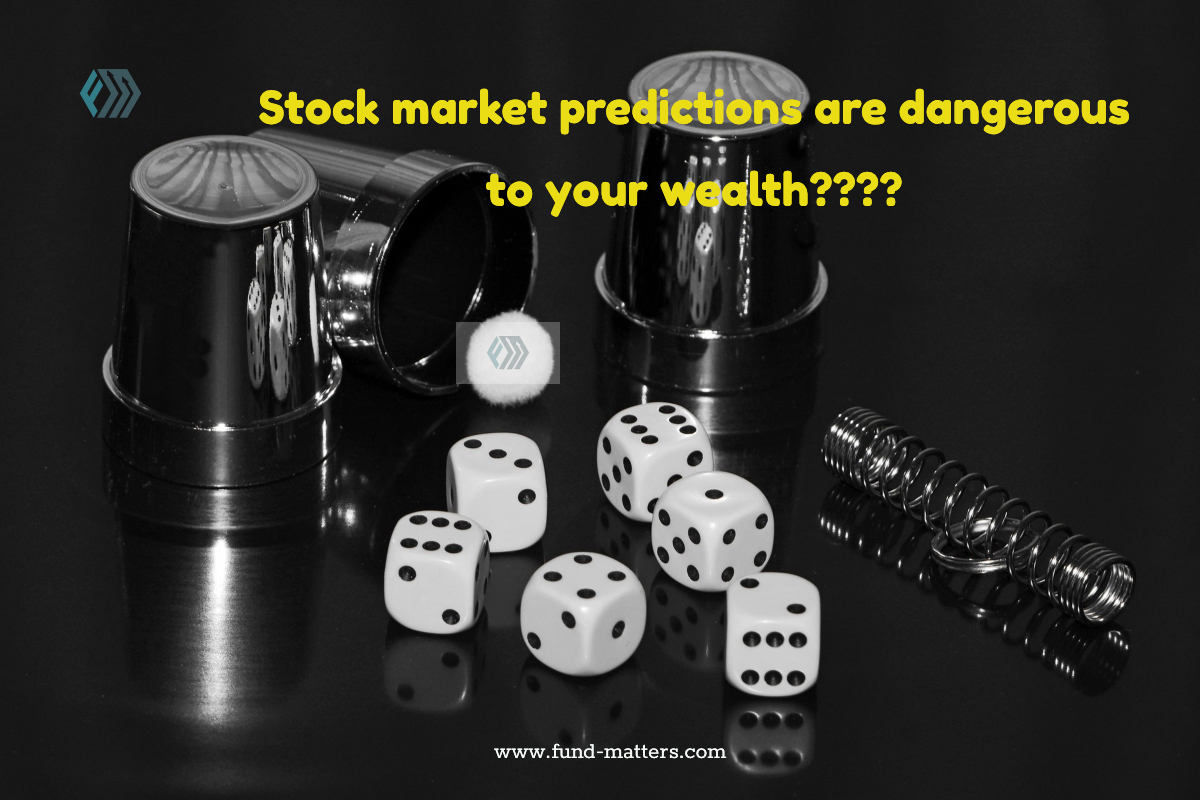Why Stock Market Predictions Are Dangerous to Your Wealth??


If meeting our financial goals is the destination, then investing sensibly is the journey.
The ability to predict the movement of the stock market is considered an important ingredient in investing. Of the many fallacies that have found their way into the investment world, one of the most popular —and also one that probably causes the maximum heartburn—is the belief that the investor should be able to predict, or get such predictions from experts, on exactly how the market, or individual stocks would move.
For a sensible investment journey, the first step is to become crystal clear about the difference between what’s “knowable” and what’s “unknowable”. So that we can stop wasting our valuable time and brain space on unknowable information. Once we know the difference between unknowable and knowable information, we will be amazed to know just how much sensibly we can make the investment journey in a steady way.
The reason unknowable information, such as financial forecasting, should be ignored because it confuses our decision-making process. It appears credible, causing us to factor it into our decisions, but it has no basis on facts.
Knowable financial advice is factual, as opposed to conjecture. Market valuations, company statistics, economic statistics, and market psychology are examples of current facts that are knowable and can be quantified. Another type of Knowable financial advice is historical research showing how investment markets behaved in the past. For example, we can know what the historical ten-year average returns for the stock. We can also know if we are currently at the upper-end of the valuation range or the lower-end of the valuation range. All these facts are knowable based on historical data. The problem is that the past may not be indicative of the future.
In other words, we can’t know the future because the future is unknowable. Using the above example, financial statistics can help you know the ten year “expectation” for stocks based on history, but we must be equally clear that we don’t know what stocks will do in the next ten years. We have an indication and a statistical expectation based on certain assumptions, but don’t think for one minute that we can predict the future. Nobody can predict the future with statistical accuracy reliable enough to invest on. The future is unknowable.
Have any of our statistical predictions and stock market forecasts factored in a ”black swan” event like the coronavirus outbreak in the financial models? Even now, after the ”black swan” event became knowable, can the statistical models predict the trajectory, time span and the extent of economic damage by the ‘novel’ coronavirus, based on the past virus outbreaks?
One should never put money at risk based on financial advice that is based on the prediction of the unknowable. The unknowable includes predictions, financial forecasting, opinions, interpretations, stock forecasts, market forecasting, hunches, beliefs, or anything else not rooted in fact.
It is beyond the ability of almost all stock market analysts, financial advisors, fund managers or investors to correctly and consistently predict the future course, that will influence the stock prices, like geo-political developments, trade wars, real wars, pandemics, climate changes etc.
According to Wikipedia, the random walk hypothesis is a financial theory stating that stock market prices evolve according to a random walk and thus cannot be predicted in the short term. Empirical data provides strong evidence that, at any point in time, there are hundreds of factors, some known and many unknown, governing the short-term direction of stock price movements.
There are innumerable examples when markets have responded exactly opposite to predictions after a major event. After each and every one of these surprises, these experts always seem to have valid explanations as to why markets responded the way they did and not the way they had predicted !
Conservative investing with steady savings without expecting miracles is the way to go.



